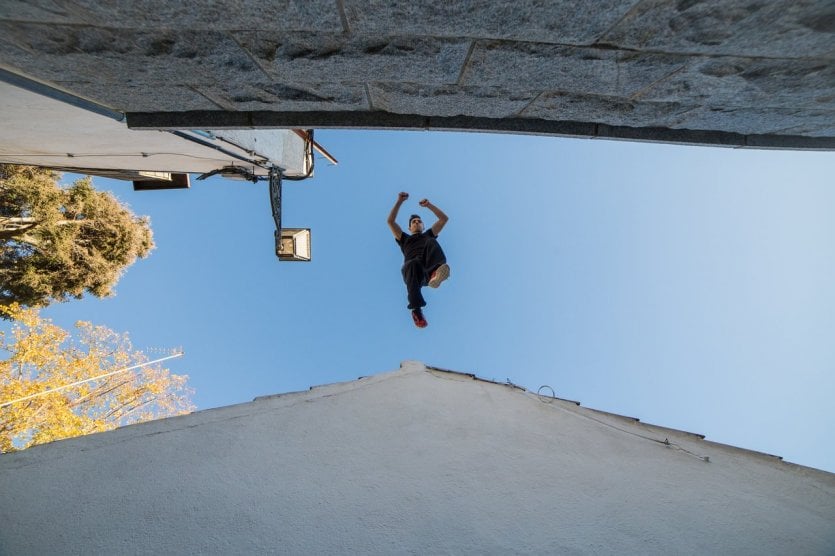
Ah, Toulouse! The pink city! Some of you may be thinking of moving there, others of visiting it. Whether for a weekend or for several years, the charm of the capital of Occitania still works. The Capitol Square, the terracotta on the facades of its houses, the violets, but also the accent of the inhabitants are recognizable among a thousand. Moreover, it is not only the latter that makes the Toulouse language unique: some terms are typical of the South-West. To help you understand everything during your next trip to Toulouse, here are fifteen words and expressions to get to know!
To enrich your lexicon even more, see also our articles on expressions from the north of France and Brittany
Boo-hoo!

If you're not from Toulouse, you'll have a hard time understanding this sentence! In Toulouse, to bulgur is to stir up, to hurry up. Thus, it is not uncommon to hear: " Boulègue-toi! "when the person you're dealing with is a little too slow. This term, like many others in the Toulouse language, comes from the Occitan bolegar which means to stir, to agitate. To remember!
That's a pec that one!

Nothing to do with pecs! In Toulouse, if they call you a pec or pègue, they're saying you're stupid or stupid! This word comes from the Occitan pec , pèga which means stupid. Not to be confused with the expression "ça pègue ", which is widely used in the south of France and which means, in this case, "it fits"
This guy's a total jobaster!

Jobastre, in the Toulouse dialect, is a synonym of the word fou. It is used especially when a person is unaware of the risks he or she is running. Another equivalent of jobastre is much better known and spread in the south of France: the word fada is also used in Toulouse!
Stop grumbling all day!

If you woke up on the wrong side of the bed or are in a foul mood, chances are you've been grumbling all day. This word from Toulouse comes from the Occitan romegar which means to grumble. Here is a term to use to make your friend from Toulouse smile again so that he finally stops grumbling!
Boudu, what a heat today!

We wanted to remain polite in the title, but, in general, the term boudu is accompanied by con, to mark the astonishment even more! This very Toulouse formulation marks the surprise or even amazement: " Boudu con, it's raining now! ». Boudu comes from the French "bon Dieu" and the Occitan " bon Diu". An expression to remember absolutely. After a few months in the pink city, you will use it without even noticing it!
I won't come today, I've got the loincloth to get out of bed!

When the sun is at its zenith, after lunch, you most likely have the loincloth to do anything. You have understood well, in Toulouse and throughout the South-West of France, to have the swan is "to be lazy", not to have the courage. You'll probably be told to be lazy rather than just sitting on your couch!
Hurry, the kid's getting a tantrum!

In Toulouse, "escaner" means to strangle, to choke. So, if your friend tells you that he's " escaner", it's very likely that he swallowed something the wrong way or that he's very out of breath after going up the stairs! It' s important to know that "he was so surprised when he heard the news that he nearly collapsed! ». This word comes from the Occitan word escanar
I have to fart all the way across town to see you!

You might be surprised when you first hear this expression, but know that it has nothing to do with what you think! Going to fart somewhere in Toulouse simply means going there, but without any real desire. So, if you walk through the whole city, you might very well say that you had to "go fart at the other end of Toulouse"!
It's the pompom on the Garonne!

We like this expression so much that we'd like to hear it more often! The pompom on the Garonne is the equivalent of the icing on the cake, the bouquet or the pompom itself! In Toulouse, we know how to adapt to the territory and we therefore prefer to quote the Garonne (and with the accent, it's even more charming!). Beware, this expression is typically Toulouse and loses all its meaning elsewhere. It's the pompom on the Seine?
I put the pockets in the trunk.

After shopping, it's not uncommon to put the pockets in the trunk and go home. Outside of Toulouse, this trunk is usually called a car trunk! What about pockets? Well, the pocket, as in many other cities in the south of France, is a plastic bag! A banal sentence which is however quite incomprehensible when one is not used to speaking Toulouse!
This guy's a real ratchet-- he'll never invite us!

The terms ratche, ratchàs and ratchou characterize a person who has sea urchins in his pockets! To put it plainly, this qualifier is not really nice, especially if it refers to you! Each of the variants of this word brings a precise nuance: a person ratche is stingy (the word comes from the French rat), a ratchàs is very stingy and a ratchou is a little less so, the suffix "or" being diminutive
Macarèl!

In the same way as "Boudu! "as we saw earlier, "Macarèl! "expresses surprise, astonishment. Its origin is linked to that of the word mackerel in its two meanings. In the past, it was a very vulgar swearword, but nowadays it is used to punctuate the sentences of Toulouse inhabitants confronted with a particularly astonishing situation! One will also hear "Macaniche! "a variation that certainly helps to reduce the coarseness of the term
We caught a break in that restaurant

Given the context, you can imagine that chasing has something to do with food. Indeed, if a man from Toulouse tells you that he caught a chop, he ate a lot! It is perfectly understandable that this can happen when you discover the local specialities such as the cassoulet of Castelnaudary, the apple croustade or the violet of Toulouse! This term comes from the Occitan chapar which means to eat
I'm tired, but rai, I'm coming anyway!

The "raï" spacer is used to reduce the importance of a thing, of a statement. It has the meaning of "it's not serious" or "it's nothing". This term comes from the Occitan rai which has the same definition. If you don't understand a Toulouse expression, your interlocutor may answer you: "raï, forget it ! »
Chocolatine or pain au chocolat?

Impossible to conclude this article without mentioning the famous chocolatine which provokes endless debates from the north to the south of France. Yes, in Toulouse they say chocolatine, but don't worry, if you order a pain au chocolat at the bakery, they will understand you all the same. On the other hand, we'll be sure you're not from Toulouse!


